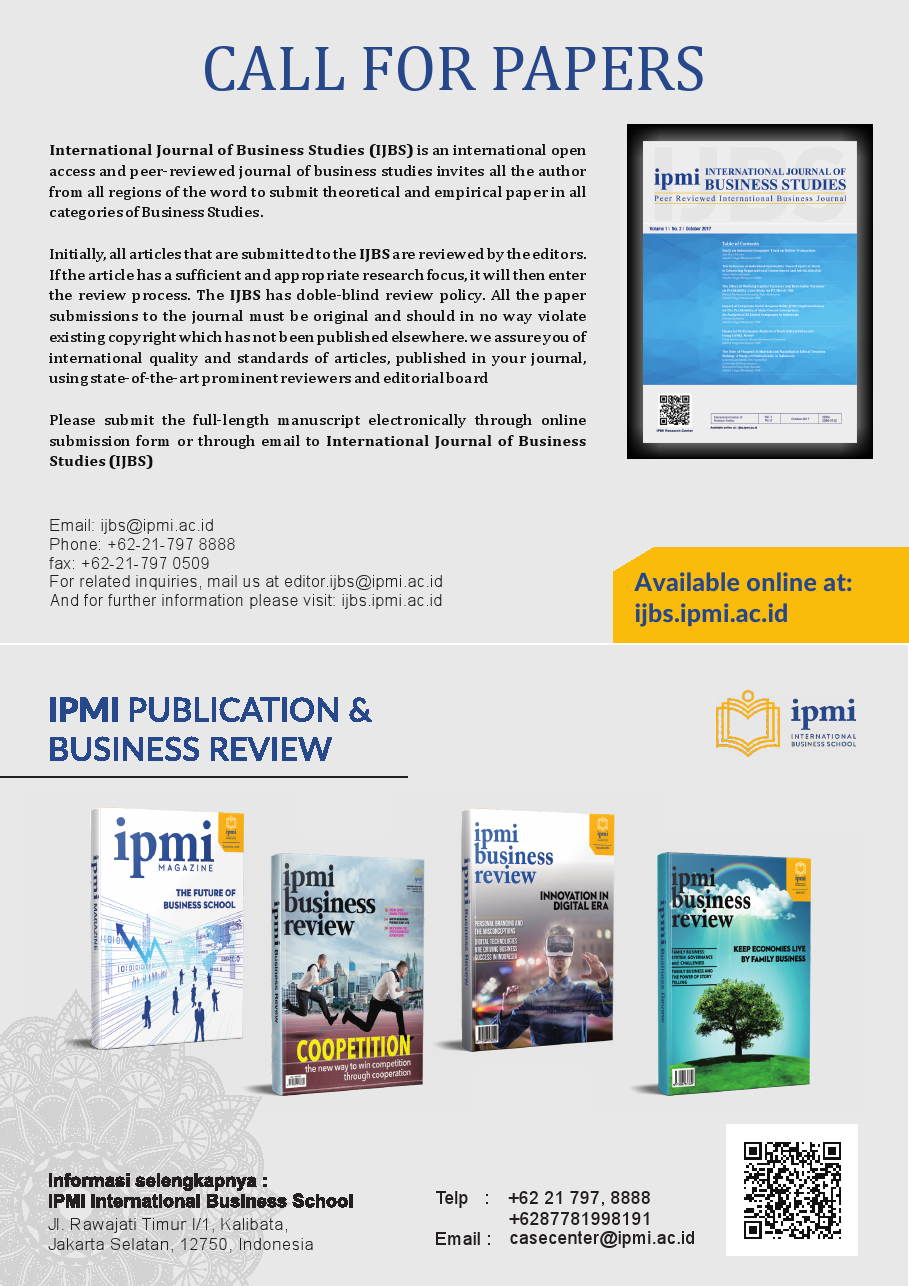Talent Measurement Model of Islamic Banking: Theoretical and Practice Perspectives
DOI:
https://doi.org/10.32924/ijbs.v8i3.355Keywords:
Talent concept, Talent management, Talent measurement, Islamic bankingAbstract
Talent measurement is a crucial component of talent management (TM). It involves the application of various measurement methodologies to assess the current and long-term potential, competencies, and contributions of employees in their roles. This study explores and integrates the theory of talent measurement from previous research with the practice of talent measurement model in Islamic banking. This study uses personal interview with the experts from selected Islamic banking in Indonesia, provides insights into how the traditional nine-box grid model is adapted within the context of Islamic banking, incorporating the principles of Maqāṣid al-Sharīʿah to ensure alignment with Islamic values. The findings suggest that integrating ethical dimensions into talent evaluation enhances fairness, employee engagement, and long-term organizational sustainability. Furthermore, the study highlights the importance of addressing talent risk factors and suggest strategies to improve talent retention in Islamic banking. This research offers valuable contribution to both theory and practice, proposing a more holistic and values-driven approach to talent management in the Islamic financial sector.
Downloads
Submitted
Published
How to Cite
Issue
Section
License

International Journal of Business Studies by Sekolah Tinggi Manajemen IPMI is licensed under a Creative Commons Attribution-ShareAlike 4.0 International License.
Authors who publish with this journal agree to the following terms:
1. Copyright Transfer Agreement Form can be downloaded HERE.
2. Authors retain copyright and grant the journal right of first publication with the work simultaneously licensed under a CC BY-SA Creative Commons Attribution-ShareAlike 4.0 International License that allows others to share the work with an acknowledgement of the work's authorship and initial publication in this journal.
3. Authors are able to enter into separate, additional contractual arrangements for the non-exclusive distribution of the journal's published version of the work (e.g., post it to an institutional repository or publish it in a book), with an acknowledgement of its initial publication in this journal.
4. Authors are permitted and encouraged to post their work online (e.g., in institutional repositories or on their website) prior to and during the submission process, as it can lead to productive exchanges, as well as earlier and greater citation of published work.














